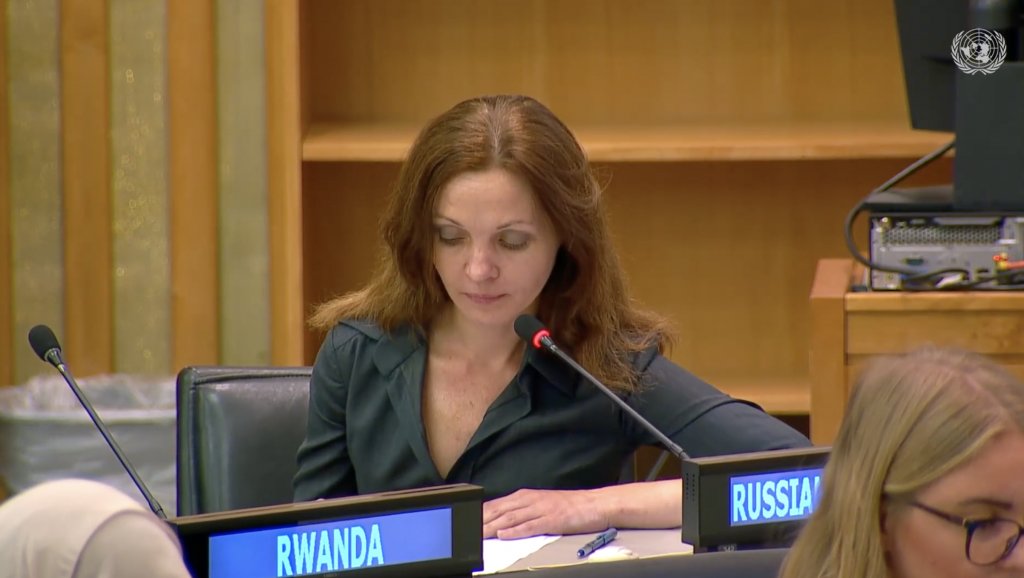Statement by the representative of the Russian Federation Victoria Kardash at the meeting of the Second Committee on agenda item 16 “Macroeconomic policy questions” and item 17 “Follow-up on the results of international conferences on financing for development and implementation of their decisions”
Mr. Chairman,
At the present stage, the world is faced with a series of macroeconomic problems against the backdrop of the inability of the international economic system, including its financial component, to cope with all current challenges. Their decision aggravates the declining desire to show solidarity, mutual respect, and the lack of fair and equitable treatment.
Existing multilateral cooperation mechanisms, for example on tax issues, including within the OECD, cannot be called inclusive and effective. We are convinced that the UN should begin to play a leading role in creating the global tax architecture, ensuring equal participation of all states in the development of decisions. The creation of effective and fair tax mechanisms on the basis of the UN would contribute to the implementation of the 2030-Agenda. We sent our proposals for reforming the international tax architecture to the Secretariat. We look forward to taking an active part in the upcoming discussion on the Secretary-General's report.
We also believe that the current global financial architecture serves the interests of only a narrow group of Western countries and does not meet the requirements of a multipolar world order. There is a clear need for reform of the Bretton Woods institutions in order to increase the representation of developing countries in their capital and governing bodies. In particular, it is important to complete the 16th General Review of Quotas of the International Monetary Fund. At the same time, countries that want to pursue independent foreign and domestic policies need to strengthen their financial and economic sovereignty, reducing dependence on the dollar and euro, as well as on Western-controlled payment systems.
With regard to trade, we also note with regret the course of individual countries towards the use of illegitimate restrictions under the guise of a “green and climate agenda”, excluding countries from participation in value chains, provoking fragmentation of the multilateral trading system and destabilizing trade and investment flows. Trade, which is the engine for development, must not only be based on fair and reasonable competition, but also take into account the vulnerabilities of developing countries.
The illegitimate unilateral trade restrictions applied by the collective West against Russia and a number of other developing states deserve special attention. Their negative impact on most of the world's economies is outlined in the WTO World Trade Report-2023.
According to WTO estimates, about 12% of world trade is currently affected by trade restrictions imposed for political reasons. In this regard, we would like to draw attention to the fact that sanctions hit not only the economies of the sanctioners themselves, but also the economies of third countries that become hostages of such an aggressive and unlawful trade policy from the point of view of international rules.
Recognition of the detrimental nature of anti-Russian sanctions measures for the global economy, especially from such an influential organization as the WTO, gives hope that at some point politicization will give way to rationality in resolving trade issues. We expect the same objective analysis from the UN Secretariat and UNCTAD, in particular.
In conclusion we would like to add with regard to agenda item 17 that we are interested in further discussions on the methodology for measuring progress in achieving sustainable development “beyond GDP” in the interests of all vulnerable groups of countries.
Thank you.
